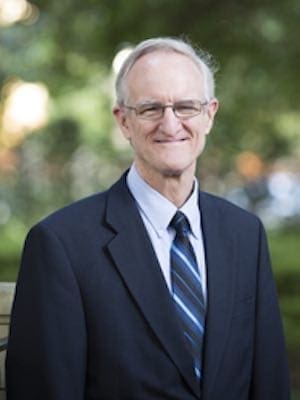The divisions within Protestantism have bedeviled believers ever since the Reformation in the 16th century.
In his recent novel, The Last Juror, John Grisham pokes fun at these divisions as he describes the life of Willie Traynor, the young owner of a small-town newspaper. Traynor decided to visit every church in Ford County, Mississippi, and do a story on each one. Working from the ads on his paper’s religion page and the local phonebook, he made a list of 88 churches.
Grisham commented that the number “was a moving target since congregations were always splitting, folding here and popping up over there.” Traynor found that the denominations “were varied and baffling” and Grisham wondered how “Protestants, all of whom claimed to follow the same basic tenets, get themselves so divided?”
With all the diversity, Grisham explained that most groups held to some basic ideas “but the devil was in the details.”
How do we handle diversity? Eradicate it with enforced conformity is the answer for some (or continually separate from persons who won’t do it your way). But in the words of John Wesley, to lord over a person’s conscience is to strike at the very root of the Reformation: private interpretation. Perhaps Wesley can help a bit further.
In his sermon, “The Catholic Spirit,” Wesley acknowledges that because we now can only know “in part” this side of heaven, Christians are going to have differences of “opinion” (beliefs) and disagree over modes of worship. Furthermore, no one can be assured that all of his or her opinions are true: “To be ignorant on some things and to be mistaken in some is the necessary condition of humanity.”
In words quite compatible with the historic Baptist emphasis on the value of the individual, Wesley said that God gave no one the right to restrict conscience or prescribe opinions because each person must give an account of him or herself before God. Follow the Golden Rule, suggested Wesley. “Every wise man, therefore, will allow others the same liberty of thinking which he desires they should allow him.”
Wesley never advocated an indifference to beliefs or worship style. He exhorted each listener to hold fast to their opinions and practices of worship but demonstrate a catholic spirit, a universal love for all people.
“Though we cannot think alike,” Wesley admitted, “may we not love alike?” Cannot we not unite in the two great commandments, to love God and to love neighbor? Don’t say, “Give me your hand” only if you agree with my opinions, but say, “Is thine heart right, as my heart is with thy heart?” Retain your opinions, but join with me in the work of God, and let us go on hand in hand.
Wesley affirmed the historic faith of Christianity. “Orthodoxy” was not a code word for enforced conformity, however. He knew that the devil was in the details trying to force an artificial uniformity that was impossible this side of heaven and was a blow to the conscience in matters of faith. He knew that such endeavors split the Church even further.
Let us be one: that is indeed the goal. But amidst our fallible perspectives, the catholic spirit of love is clearly the foundation. Ecumenical cooperation was a gift of Wesley. Perhaps it is time to say “thank you.”
Doug Weaver is assistant professor of religion at Baylor University.

